Giving, Simplified!
“The heart that gives is never empty.”
Alice Dunbar Nelson,
American writer, activist (1875-1935)
Question: Can you explain Donor Advised Funds (DAF)?
Answer: Donor Advised Funds are a popular charitable giving solution that provides immediate full tax benefits and can be an alternative to a private foundation. If giving is in your heart and you’re ready to invest in people, organizations and communities while uplifting those who need it most, charitable planning vehicles should be a topic of conversation with your advisor. By using a DAF, you can maximize your impact to charitable causes and see your generosity going further in an uncomplicated, tax savvy way.
Donor Advised Fund (DAF)
A DAF is like having a designated bank account for charitable giving. You can contribute to the DAF as often as you like, with cash, securities, or other illiquid assets. You receive an immediate tax deduction upon funding the account for the full fair market value, but don’t have to distribute the contributions until a later date.
If a DAF sounds too fancy, or something only for “high net worth” families, it's not. To establish a Raymond James Charitable DAF account, you only need to contribute as little as $10,000 in cash or securities and administrative responsibilities are outsourced. There are no mandatory annual distributions, and you can even remain anonymous.
However, you are limited to disbursing funds only to qualifying charitable entities. Other considerations include the fact that assets are irrevocable once donated, and although invested, you have no direct control over the investments beyond stating an investment objective. DAFs can be used to make grants to most 501(c)(3) public charities. Typical grants include donations to philanthropic, religious, educational, and healthcare organization as well as arts and culture groups, and other various other nonprofits. DAF funds cannot be used to pay for membership fees, purchase tickets for events, or fulfill personal pledges. DAF grants must be given with no expectation of anything of value in return. DAFs are a popular as they offer great tax benefits and flexibility. The tax deduction for contributing cash can be up to 60% of adjusted gross income and 30% for long-term appreciated assets.
A Legacy of Family Giving
You can involve your family in charitable giving through a DAF by asking for grant suggestions from family members. We have family meetings and will discuss upcoming DAF grants over Easter dinner with the kids and grandkids. It’s heartwarming and a wonderful way to involve them in discussions and decisions of where our Family Foundation grants will be made and act on their input. Plus, we learn about what causes and organizations are most meaningful and important to them.
If you want a simple solution with low costs and the potential for assets to grow tax-free, a DAF is an option. Similar to a private foundation, a donor advised fund lets you donate to your favorite charities and receive immediate tax benefits and deductions, but with less expense and setup requirements. Other benefits include no capital gains on appreciated assets that are gifted, immediate tax deduction for full market value of the gift for most assets, assets donated are no longer part of your estate value, a DAF carries on your legacy and makes a difference in people’s lives and communities for years to come, carrying on your legacy.
DAFs are now more popular that private foundations for many reasons and are a powerful force in the philanthropic community while meeting the needs of individual chartable desires. According to the National Philanthropic Trust and “The Chronicles for Philanthropy,” in 2021, individual gifting was 22% from DAFs and 15% from Private Foundations providing access to many more charitably inclined individuals and families. In 2023, Grants from DAFs increased 9 percent to $52.16 billion, a new high, and contributions grew at the same rate.
We recommend you collaborate with your financial advisor alongside your legal and tax professionals to coordinate the most appropriate charitable solution for your situation. Raymond James and its advisors do not offer tax or legal advice. You should discuss any tax or legal matters with the appropriate professional. Every investor's situation is unique, and you should consider your investment goals, risk tolerance and time horizon before making any investment. Stay focused and plan accordingly.

Raymond James & Associates, Inc., member New York Stock Exchange/SIPC. The opinions expressed are those of the writer as of March 17, 2024, but not necessarily those of Raymond James & Associates, and subject to change at any time based on market conditions and other factors. There is no guarantee that these statements, opinions, or forecasts provided herein will prove to be correct. The information has been obtained from sources considered to be reliable, but we do not guarantee that the foregoing material is accurate or complete. Investing involves risk and you may incur a profit or loss regardless of strategy selected, including asset allocation and diversification. Please consult your independent legal counsel and/or tax professional regarding any legal or tax issues raised in this material. Raymond James and its advisors do not offer tax or legal advice.
“Certified Financial Planner Board of Standards Inc. owns the certification marks CFP®, CERTIFIED FINANCIAL Main™, CFP® (with plaque design) and CFP® (with flame design) in the U.S., which it awards to individuals who successfully complete CFP Board’s initial and ongoing certification requirements.” This article provided by Darcie Guerin, CFP®, First Vice President, Investments & Branch Manager of Raymond James & Associates, Inc. Member New York Stock Exchange/SIPC 606 Bald Eagle Dr. Suite 401, Marco Island, FL 34145. She may be reached at (239)389-1041, email darcie.guerin@raymondjames.com Website: www.raymondjames.com/Darcie

